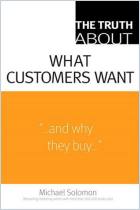加入 getAbstract 阅读摘要

加入 getAbstract 阅读摘要
Dick Stroud
The 50-Plus Market
Why the Future Is Age Neutral When It Comes to Marketing And Branding Strategies
Kogan Page, 2006
看看什么内容?
If you ignore the 50-plus market, you’re neglecting powerful potential customers (the Boomers have big bucks).
Recommendation
The world’s population is getting older. Shouldn’t marketers address this phenomenon? No. Actually, they should ignore it most of the time, says author Dick Stroud, who advocates marketing without regard to the consumer’s age, except when a specific situation seems to call for it. Stroud and other contributors contend that focusing your general marketing effort solely on younger consumers is a waste of outreach opportunities. He bases his recommendations on global demographic surveys and on his experience with the 50-plus market. This practical book contains information about demographics and segmentation techniques, as well as the results of international studies of older consumers. It provides real bonuses, such as questionnaires you can use to gauge your company’s attitudes toward older people, but it is also repetitive. getAbstract recommends it to serious market researchers and others who want to consider how age affects marketing worldwide.
Summary
About the Author
Dick Stroud directs a marketing strategy consultancy that advises companies about the business implications of aging demographics. He is the U.K.’s leading expert on using interactive channels to communicate with people who are older than 50.





















Comment on this summary